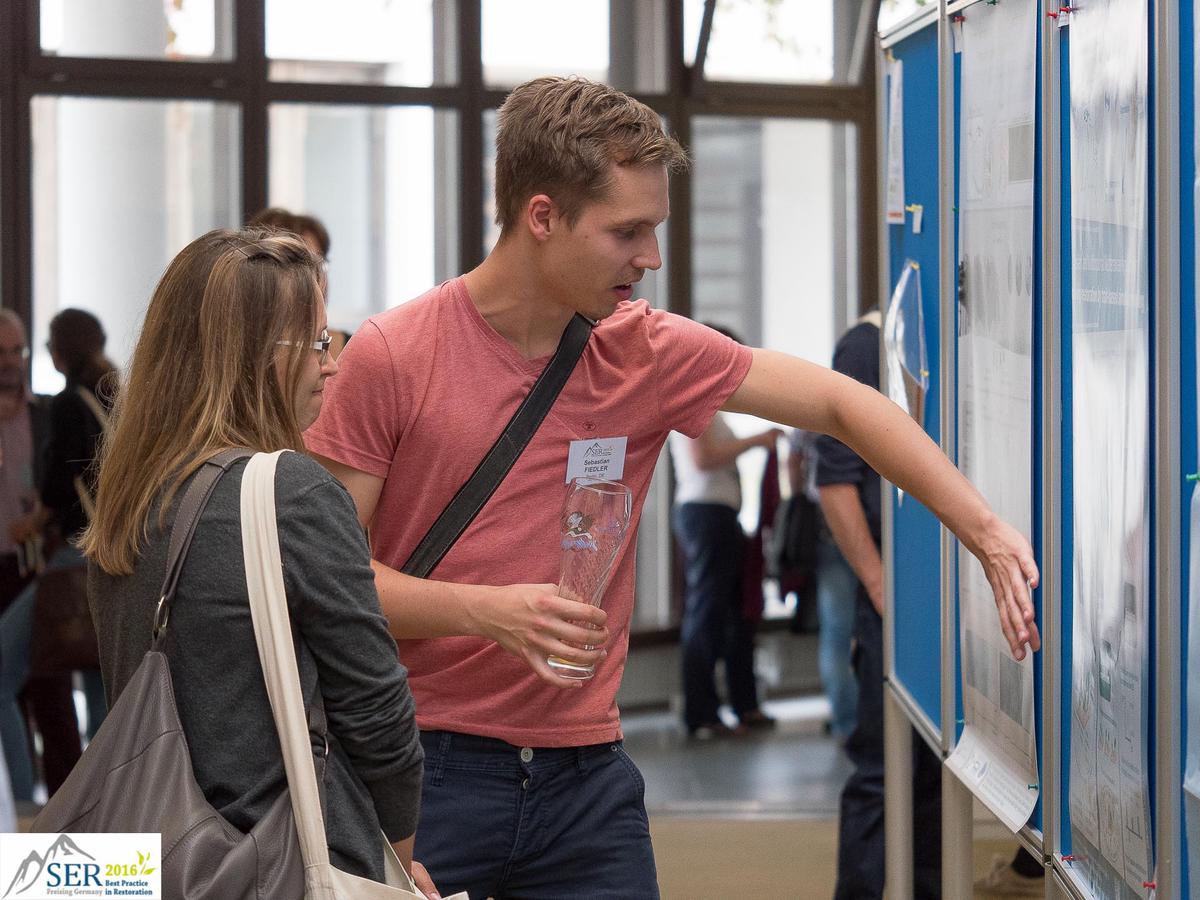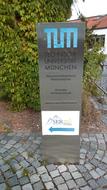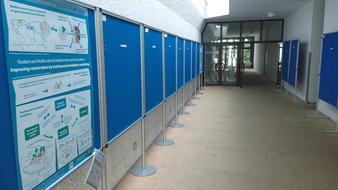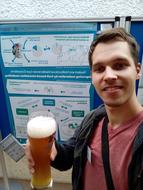 Me in action during poster session
Me in action during poster session
Abstract of my poster
Resilient and multifunctional Mediterranean-type ecosystems: Improving restoration by trait-based simulation modelling
Sebastian Fiedler, Michael P. Perring, Britta Tietjen
Ecosystem services provided by Mediterranean-type ecosystems (MTEs) are currently at risk due to global change (e.g. change in land use, nitrogen deposition, climate). Ecological restoration increasingly aims at restoring towards resilient and multifunctional landscapes. Therefore, we require a fundamental understanding of the link between ecosystem composition, related ecosystem functions and services, and influencing environmental drivers. Measurable plant traits (e.g. height, specific leaf area, seed mass) have been recognised as such a link. However, this knowledge has not been included into restoration research of MTEs, yet. In our study, we aim at closing this gap. We will present a conceptual framework for a trait-based simulation model that links ecosystem composition given by its traits, ecosystem functions, and the provision of ecosystem services of MTEs. The model is intended to assist an ongoing large-scale restoration project in Western Australia (the Ridgefield experiment) on multiple ecosystem services. In a full factorial design, trade-offs between services will be assessed, and the resilience of the ecosystem towards multiple drivers of global change will be tested.


